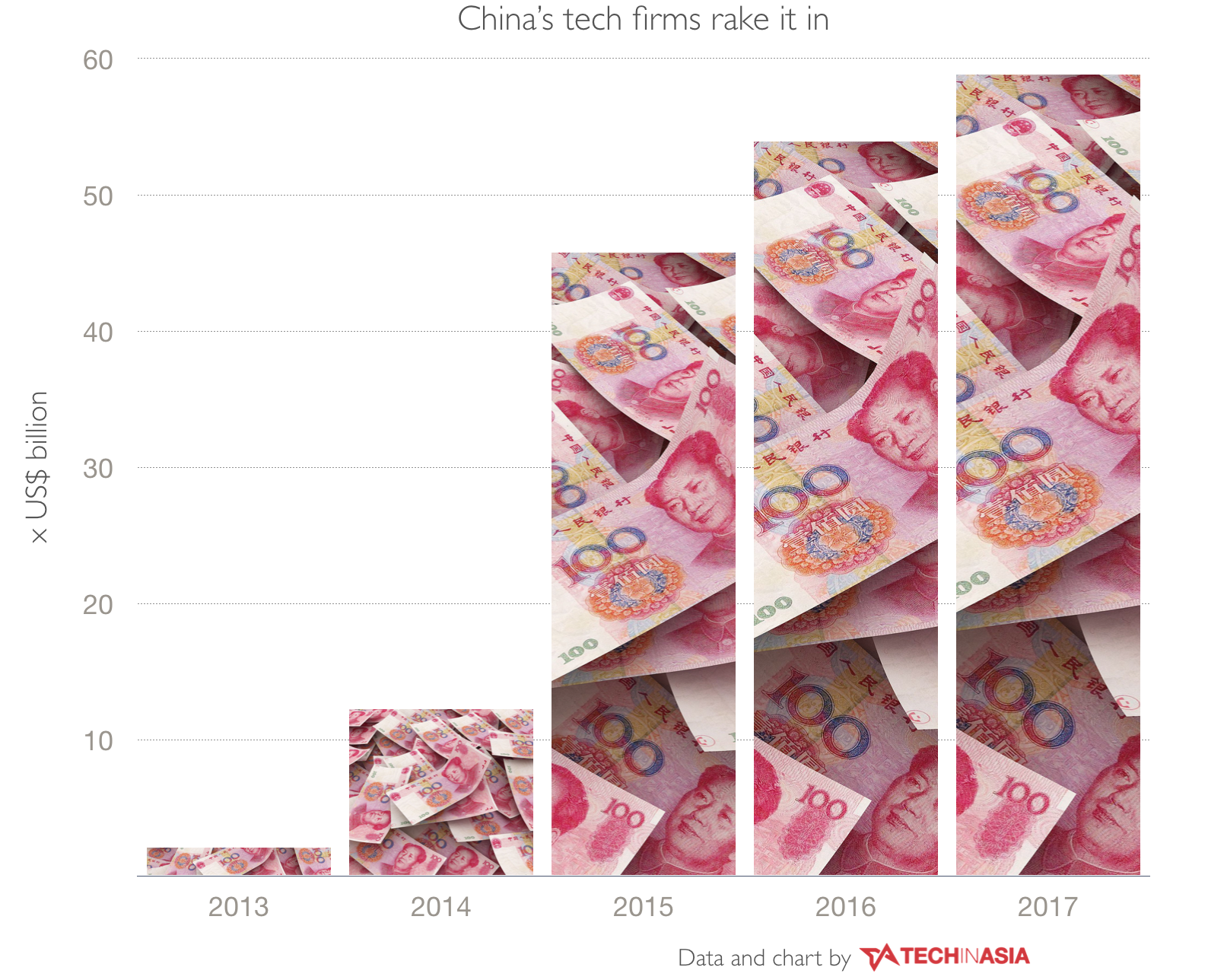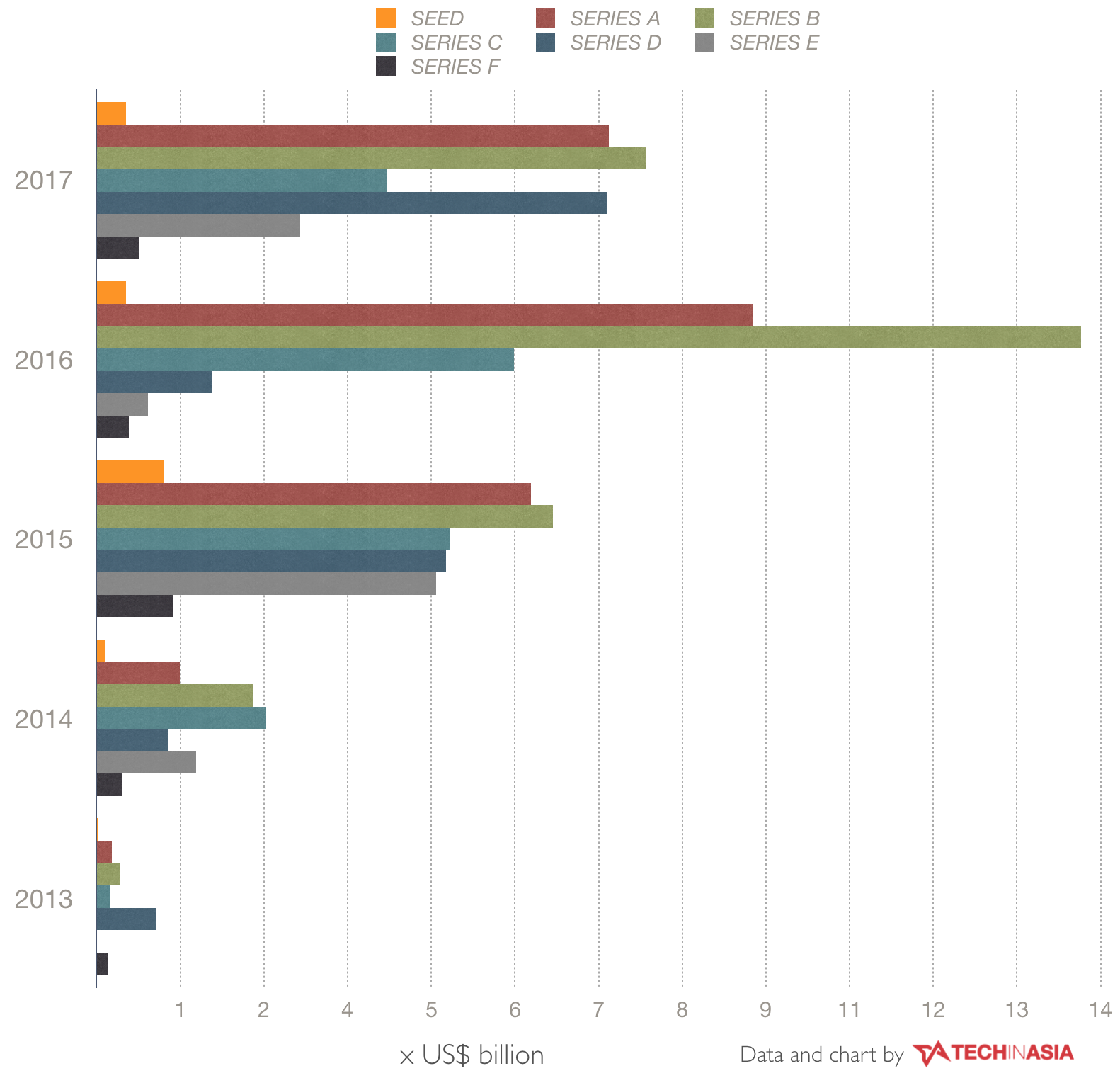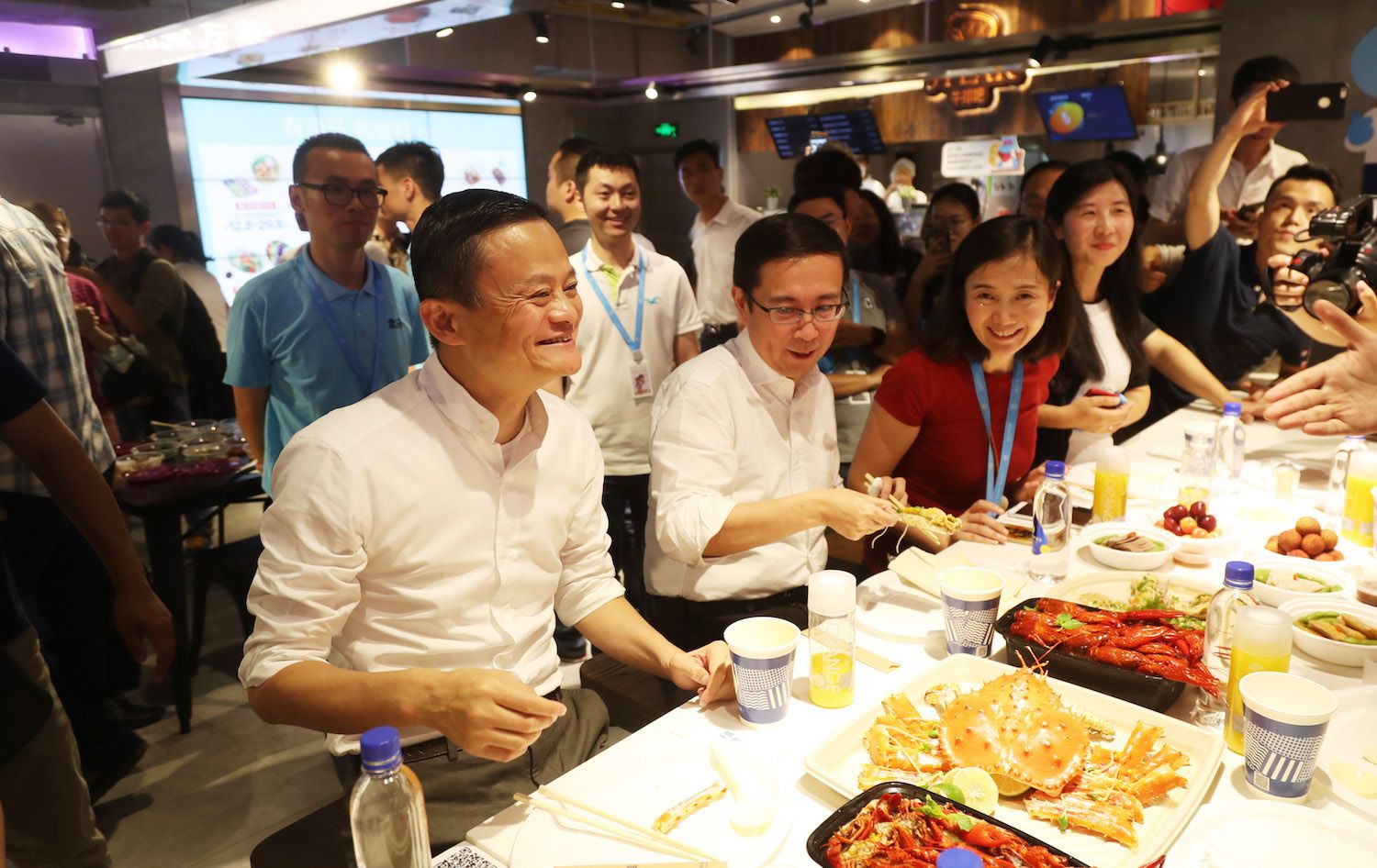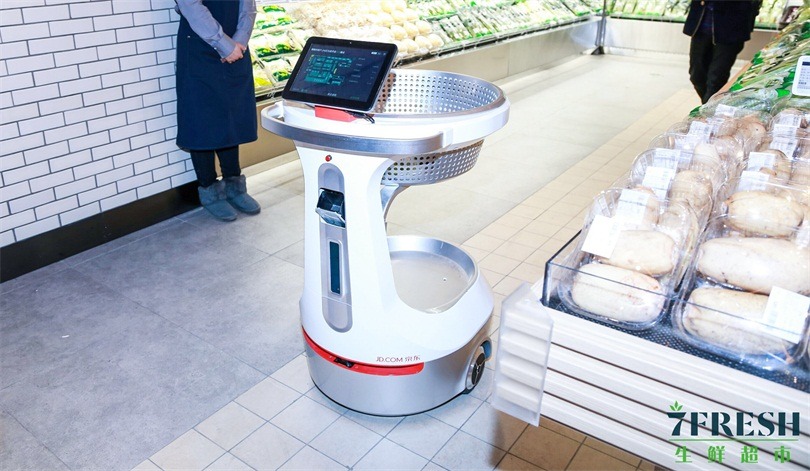China’s startups and tech giants pulled in a record US$58.8 billion from investors in 2017, according to the Tech in Asia database. That’s up a few billion from 2016’s tally.

There was no sign of the giant bubble that some dreaded in 2016 after an explosion of local tech funds poured new – and very inexperienced – cash sources into the market.
“I think there are always ups, downs, and bubbles for specific verticals and sectors of funding. That was the case for bike-sharing and autonomous cars in 2017,” said Edith Yeung, partner and China boss at US-based 500 Startups. “Investors are hopeful they would see a Didi for bike-sharing,” she added, referencing China’s dominant ride-hailing app.
2017’s bumper haul came despite fewer funding rounds, resulting in a record-high average round of US$33.6 million a pop.
The year’s largest single investment was worth US$5.5 billion, went to Didi Chuxing. The startup raised a total of US$9.5 billion in 2017 as it ploughs cash into AI, a self-driving car research lab, and its hotly anticipated plans to expand beyond mainland China. Its expansion manifested itself yesterday when Didi acquired a Brazilian ride-hail app to get a grip on the fast-growing Latin America market that Uber covets so much.
See: China’s 10 biggest investments in 2017
Top gear
Didi and the bike-share startups – especially Mobike and Ofo – contributed to the logistics and transportation sector attracting the most funding, just as it did in 2016. Here’s the top five this year:
- 1st: Logistics and transportation, US$16.8 billion
- 2nd: Ecommerce, US$12.7 billion
- 3rd: Fintech, US$4.8 billion
- 4th: Hardware, US$2.6 billion
- 5th: General internet services, US$2.5 billion
Finance startups – aka “fintech” – raised half of what they did last year as China’s quick start in this sector in the past decade has resulted in several niches – online lending, insurance, etc – being dominated by big-name players. On top of that, a handful of Chinese fintech firms went public in 2017, led by insurer Zhong An. Money raised from an IPO is not shown in our data.
More moolah for mature startups
This year’s figures show a surprise resurgence in investor interest in more mature startups, particularly for series D investments.

As previous years have shown, funding for more established startups can fluctuate wildly.
But Azeem Azhar, author of the Exponential View newsletter, predicts that trend will persist and be seen globally in 2018. “More money will flow into technology but it will be concentrated at later stages. Following Softbank’s lead, funds bigger than US$5 billion will abound now that the investment case of platform monopolies is well understood. These will seek to back emerging winners at a regional and global level – look at Careem and Didi in ride-sharing, for example,” he writes.
“This may create funding gaps at earlier stages in the market, as already evidenced by the seed capital slowdown in Europe and the US,” added Azhar. That also seems to be happening in China.
But for very young startups seeking seed funding for initial growth, there’s a big new factor in play – ICOs, otherwise known as coin offerings.
“Many startups are raising ICOs rather than seed rounds,” said Yeung after getting a sneak peek at Tech in Asia‘s data. “I believe the ICO is here to stay. This is not necessarily reflected in the graph.” Indeed, our figures don’t include money raised through an ICO.
China saw 65 coin offerings raising over US$394 million in the first half of 2017, but September’s ban on ICOs brought that to a halt.
Despite that shutdown, Yeung believes blockchain and cryptocurrencies remain a “significant trend for the Chinese startup environment.” She continued: “I do believe China will make a huge comeback in the virtual currency space.”
See: As ecommerce steamrolls retail, China’s stores fight back with tech
Shop, shop, shop
2017 was the year a lot of China’s tech money poured into old-fashioned retail. Online shopping giant Alibaba was already doing this a few years before Amazon’s shock Whole Foods deal, but Jack Ma’s company accelerated its drive into brick-and-mortar stores this year by opening more of its own supermarkets.
Its chain, dubbed Hema, first appeared in 2015.
When a customer shops at a Hema store, their preferences are saved in its app. That makes it easier to order online and get deliveries if you prefer to do it that way next time.

GIF by Tech in Asia, from Alibaba’s video
Alibaba’s supermarkets put a lot of focus on fresh foods. It’s aliiiiive!

GIF by Tech in Asia, from Alibaba’s video
There are chefs in-store ready to cook up what you buy, which you can then eat in the canteen – as Ma and Alibaba CEO Daniel Zhang are doing here.

Photo credit: Alibaba
Or you could order the food online and get the cooked meal delivered to your door.
Alibaba plans to open 30 more such stores across China in 2018.
In November, Alibaba invested US$2.9 billion into a massive supermarket chain as it seeks to improve real-world shopping by injecting it with a lot of tech.
Archrivals Tencent and JD also made their own tentative moves into grocery stores, though the ramifications of those actions won’t be seen until a little later in the new year.
JD started 2018 with a bang by showing off its 7Fresh stores, which feature these self-steering carts that follow you around.

Photo credit: JD
Thanks to Queena Wadyanti for help with the data.
This post China sees record tech funding in 2017 appeared first on Tech in Asia.
from Tech in Asia https://www.techinasia.com/china-tech-funding-record-high-2017
via IFTTT

No comments:
Post a Comment